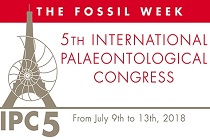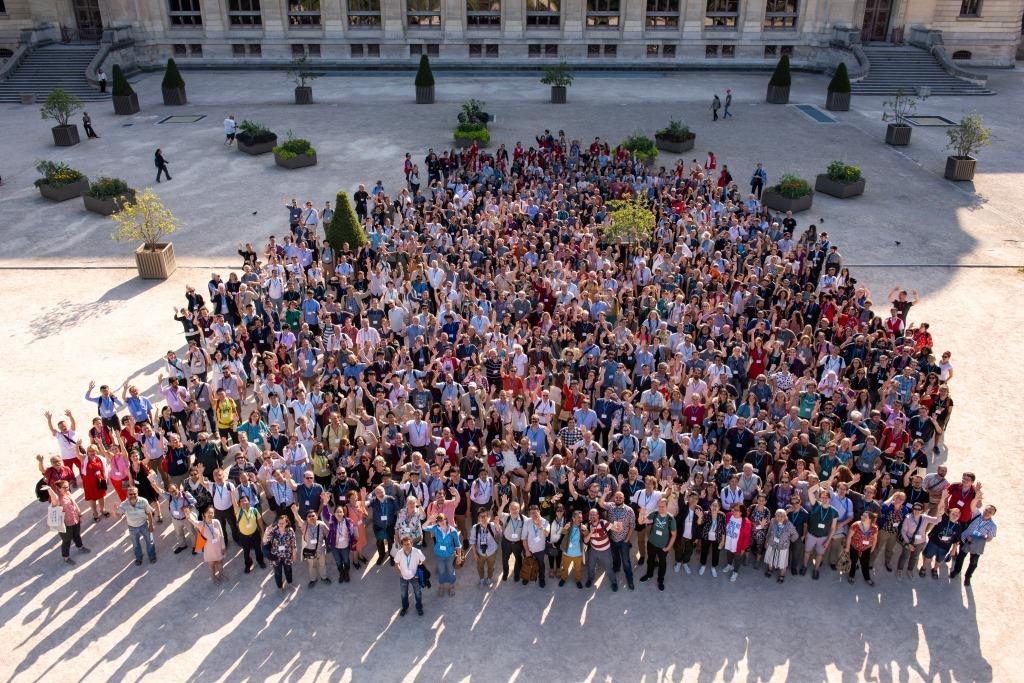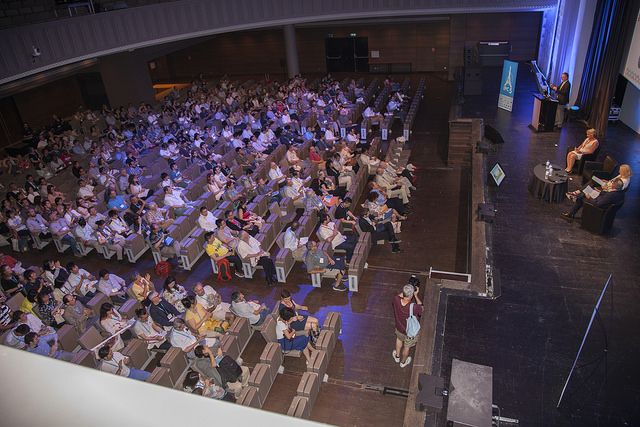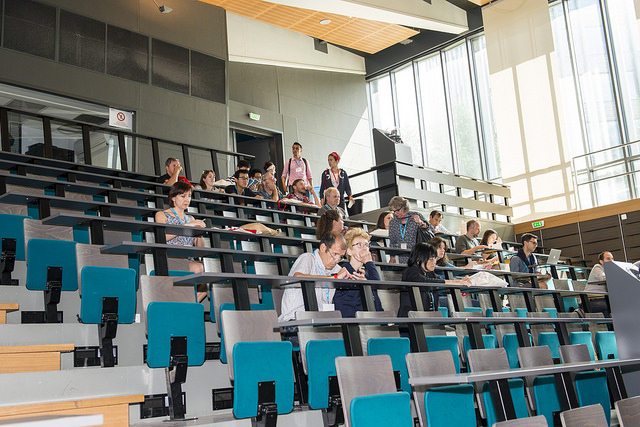 The 5th International Palaeontological Congress (IPC) under the auspices of the International Palaeontological Association (IPA) was held in Paris from the 9th to 13th of July 2018. This great festival of palaeontology has been held regularly every four years since 2002. This time, the event was attended by over 1000 scientists from around the world, and the Polish Geological Institute - National Research Institute (PGI-NRI) was represented by Izabela Ploch.
The 5th International Palaeontological Congress (IPC) under the auspices of the International Palaeontological Association (IPA) was held in Paris from the 9th to 13th of July 2018. This great festival of palaeontology has been held regularly every four years since 2002. This time, the event was attended by over 1000 scientists from around the world, and the Polish Geological Institute - National Research Institute (PGI-NRI) was represented by Izabela Ploch.
The congress was focused on a wide range of problems related to flora and fauna from the Precambrian to the Quaternary period. It was an occasion to discuss the evolution of life over time and space, crises and mass extinctions in the Earth’s history, as well as problems of biostratigraphy, palaeogeography, diversity of palaeoenvironments and the latest research methods to study them.

The participants of the 5th International Palaeontological Congress, photo taken in front of the National Museum of Natural History
The Permian period and dramatic changes which happened on the Earth at that time were widely discussed. Many presentations reported new discoveries about the oldest known life forms from the Precambrian. There was a big interest in the Devonian crisis, one of the five major mass extinctions. The congress was accompanied by workshops, field trips and exhibitions as well as other palaeontology-related activities.

One of many discussion panels at the 5th International Palaeontological Congress in Paris
The PGI-NRI was represented by Izabela Ploch who showed a poster, prepared with Hubert Kiersnowski, about the project which started this year, Early Permian tetrapod footprints from the Central Sudetes (Poland) - new perspectives. This is the first project of the PGI-NRI funded by HARMONIA 9, the research programme of the National Science Centre of Poland. The project aims to explore the Early Permian environment of the non-marine Intra-Sudetic Basin and to study its changes which preceded the great Permian extinction and the breakup of the Pangea supercontinent. The project will also update and unificate the Permian stratigraphy for the Polish-Czech borderland in the Intra-Sudetic Basin. Among other discoveries, the poster featured well-preserved footprints of tetrapods, frequently found in the study area. The footprints will be correlated with the similar trace fossils found in the neighbouring Permian basins.

The 5th International Palaeontological Congress was filled with interesting lectures, presentations and events
The next International Palaeontological Congress will be held in 2022. Who knows, maybe this time it will be hosted in Poland?
Text: Izabela Ploch
Photos: https://ipc5.sciencesconf.org
Translated by Tomasz Żuk














 PGI-NRI offer
PGI-NRI offer Mineral resources of Poland
Mineral resources of Poland  Oil and Gas in Poland
Oil and Gas in Poland 



 Subscribe to RSS Feed
Subscribe to RSS Feed